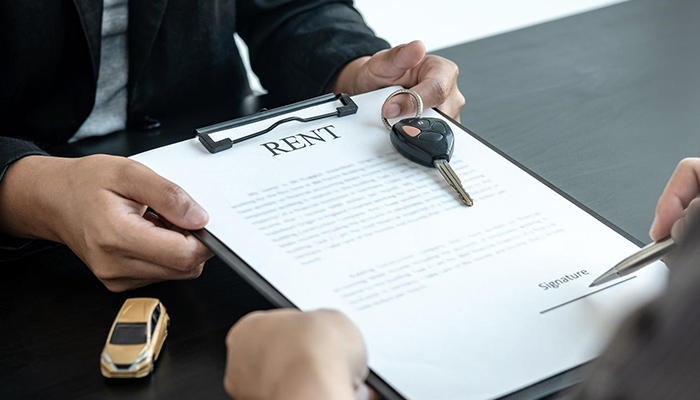Leaving your parents’ home can be exciting and nerve-wracking all at once. Your heart’s racing because you’re about to trade in the creaky old door of your childhood bedroom for a set of keys to a place that’s 100% yours. If you’ve been lying awake asking yourself, “How do I actually move out of my parent’s house?” or staring at the ceiling wondering, “When’s the right time?” or even quietly thinking, “I really want to move out, but where on earth do I start?” — you’re definitely not alone. Honestly, half the people scrolling through apartment listings right now are probably wondering the exact same thing.
Learn more: Essential Apartment Moving Tips for a Smooth Transition
If you’re nodding along and thinking, “Yeah, I’m ready for this,” then having a solid plan will save you from those 2 a.m. panic moments and actually make this adventure something you can enjoy. So, here are 10 practical tips to help you nail the money stuff, handle the logistics, and keep your sanity intact as you dive into this next chapter.
10 Essential Tips for How To Move Out Of Your Parents’ House
1. Figure Out Your Finances and Make a Realistic Budget

First things first: can you actually afford to move out right now? Being realistic about your financial situation is key.
Start by adding up all your monthly income — jobs, scholarships, side gigs, whatever you’ve got.
Then, write down everything you spend on:
- Rent or mortgage
- Utilities like electricity, water, gas, and internet
- Groceries and household stuff
- Transportation (car payments, insurance, gas, or transit passes)
- Your phone bill
- Health insurance or medical expenses
- Social events
- Additional expenses such as laundry, clothes, or surprise repairs
And don’t forget the one-time moving costs — security deposits, application fees, buying your first couch or kitchenware. These little things add up faster than you think.
If budgeting isn’t your expertise, apps like Mint or YNAB can be lifesavers. They help you see exactly where your money’s going so you don’t get blindsided or rack up credit card debt.
If you’re stressing over moving costs, companies such as Clutter give you clear, upfront pricing. No surprises, so budgeting your move gets a whole lot easier.
Learn more: 5 Self-Care Tips to Reduce Stress During a Move
2. Build Up an Emergency Fund

Life throws curveballs. Maybe you lose a job, or your car needs a surprise fix. It’s totally normal to worry about that stuff.
That’s why an emergency fund is your best friend. Try to stash away enough to cover 3 to 6 months of expenses before you move. Don’t have that much saved yet? No worries—start small. Put a little aside from each paycheck and automate it if you can. This fund is your safety net and will help keep the stress at bay while you’re getting settled.
Learn more: How Much To Tip Movers: A Comprehensive Guide
3. Find a Place That Fits Your Budget and Lifestyle

Picking where you’ll live is huge. Your new home should feel safe, be affordable, and actually work for your day-to-day life.
Think about your commute—long, stressful trips can wear you down quickly. Check out neighborhood safety online (NeighborhoodScout is a good resource ). Decide if you want to fly solo or have roommates. Splitting rent can save you money but let’s be honest, living with others can lead to complications as well.
Look at what’s around—groceries, parks, transit options—and use places like Zillow, Apartments.com, or Craigslist to scope out your options. Don’t be shy about visiting or hopping on virtual tours.
Pro tip: If your new spot is cozy and doesn’t have much storage, Clutter’s temperature-controlled storage options can keep your stuff safe and sound until you’re ready for it. It’s like having an extra closet, without the hassle.
Learn more: How Much Does It Cost to Move? Moving Company Expenses Explained
4. Understand Your Lease and Know Your Rights

Signing a lease isn’t just paperwork; it’s a legal promise. So, make sure you read the fine print carefully. Look for details such as:
- How long is the lease? (month-to-month or year-long?)
- What’s the rent, when is it due, and what if you’re late?
- How much is the security deposit, and when do you get it back?
- Are pets allowed? What about guests or noise restrictions?
- Who’s responsible for fixing what?
- How do you break or renew your lease?
If anything feels off, ask the landlord before you sign. It’ll save you headaches down the road.
Also, every state has renter protections—limits on deposits, eviction rules, and maintenance requirements. Checking out resources like the American Bar Association or local tenant groups can help you know your rights.
Learn more: 9 Things to Consider Before Moving from a Dorm to Your Own Place
5. Plan Your Move Ahead of Time

Moving day can easily become a mess if you’re winging it. So, book your movers or truck rental early—seriously, don’t wait until the last minute. If you’re roping in friends, give them plenty of notice.
Make a checklist that breaks down everything week by week. Pack non-essentials early, arrange utilities, change your address, and clean your old place.
Stock up on packing supplies—boxes, tape, markers—and label everything so unpacking feels less like a scavenger hunt.
If heavy lifting isn’t your thing, full-service movers like Clutter can handle the whole process: packing, moving, storing if needed, and delivering, with tracking so you’re never wondering where your stuff is.
Learn more: Renting a Storage Container: 15 Things You Need to Know
6. Declutter Before You Pack

Moving is the perfect excuse to Marie Kondo your life. Be real with yourself—do you actually need that old hoodie or textbooks from high school?
Donate, sell, or toss what’s just taking up space. Less stuff means less stress, less cost, and less time packing.
When you pack, use sturdy materials, group similar things together, and label boxes clearly. Pack an essentials box with stuff you’ll need right away—think toiletries, chargers, and a couple of outfits.
If you’re short on time or just want it done right, Clutter’s packing pros can swoop in and make sure your belongings are safely packed and ready to roll.
Learn more: How to Declutter Before Moving: 5 Simple Tips
7. Set Up Utilities Before You Move In

Showing up at a dark, internet-less apartment? No thanks. Contact utility companies a couple of weeks before moving day to get your electricity, water, gas, and internet switched on.
Keep track of confirmation numbers and any installation appointments so you don’t get stuck in the dark.
Learn more: How to Pack to Move: A Complete Checklist
8. Update Your Address Everywhere

Changing your address might not be exciting, but it’s really important. Make sure to update it with the USPS online, and also let your bank, credit card company, boss, doctor, any subscriptions you have, and your family know your new address.
Set reminders to update your info on new accounts or services, too, so your mail and bills keep coming without a hitch.
Learn more: New Home Checklist: The Ultimate Guide to Moving In
9. Learn Basic Cooking and Home Skills

Living alone means you’re the chef, the cleaner, and the handyman. Start with simple, healthy recipes that won’t break your budget.
Get comfortable with laundry, trash duty, and basic cleaning routines. Learn to swap out light bulbs, reset circuit breakers, or unclog a drain—these small skills save you time and money.
Learn more: 3 Essential Steps to Take After Moving Into Your New Home
10. Build Your Support Network

Moving out can be lonely, so keep in touch with family and friends. Get to know your neighbors, join local groups, or find meetups that match your hobbies.
Having people around who get it makes all the difference.
Learn more: 21 Essential Moving and Packing Supplies You Need for Your Next Move
Experience a Seamless Move—Trust Our Professional Movers!
Conclusion
Moving out of your parents’ house isn’t just about changing your address—it’s about growing into independence. Whether you’re still wondering when the right time is or you’re ready to pack your bags now, following these tips will help make your move smoother and less stressful.
If you want to make life easier, professional moving and storage services like Clutter are worth considering. Their experts handle packing, moving, secure storage, and on-demand delivery so you can focus on settling in and starting your new life.
Ready to take the plunge? Plan ahead, stay organized, and enjoy the freedom that comes with living on your own. Your new adventure is just around the corner!
Learn more: The Ultimate Moving-Out-of-State Checklist
FAQs for How To Move Out Of Your Parents’ House
1. At what age do most people move out of their parents’ house?
Well, there’s no hard-and-fast rule, in the U.S., most people tend to move out somewhere between 18 and 24. It depends on your situation, for example if you’re still in school or have a steady job, or feel financially ready. Have you noticed how some friends move out right after high school, while others stick around longer to save up? It’s perfectly fine to take your own path.
2. How much money should I have saved before moving out on my own?
It’s a good idea to have at least three to six months’ worth of living expenses saved up before you take the plunge. This isn’t just about rent—it’s utilities, groceries, random car repairs, or even those surprise expenses that arise.. If you don’t have that yet, don’t sweat it. Start small by putting aside a bit each paycheck. Having that cushion can really ease the nerves when unexpected stuff pops up.
3. What’s the best way to find affordable housing when moving out?
Finding a good place that doesn’t break the bank can be tricky. Start by checking out sites such as Zillow or Apartments.com, and don’t overlook Craigslist (just watch out for scams). Thinking about roommates? That can be a total game-changer for saving money, but make sure you pick people you get along with. Also, sometimes, looking outside the busiest neighborhoods can land you a better deal. Have you tried visiting places in person or doing virtual tours? They really help get a feel for the spot.
4. How do I manage my finances once I move out?
Managing money on your own can be a bit overwhelming. The trick is to create a budget that covers rent, utilities, groceries, and the little extras. Apps such as Mint or YNAB are great for keeping tabs on spending. And don’t forget to keep building that emergency fund—it’s your safety net.
5. What challenges do first-time movers usually face?
Moving out for the first time? It’s exciting, but it also throws some curveballs. From juggling bills to figuring out how to cook your own meals, it’s a lot to handle. Feeling a bit lonely or overwhelmed? That’s totally normal. You’ll also have to get used to cleaning your own place—no parents to call for help! The key is to plan ahead, ask for help when you need it, and give yourself some grace.








